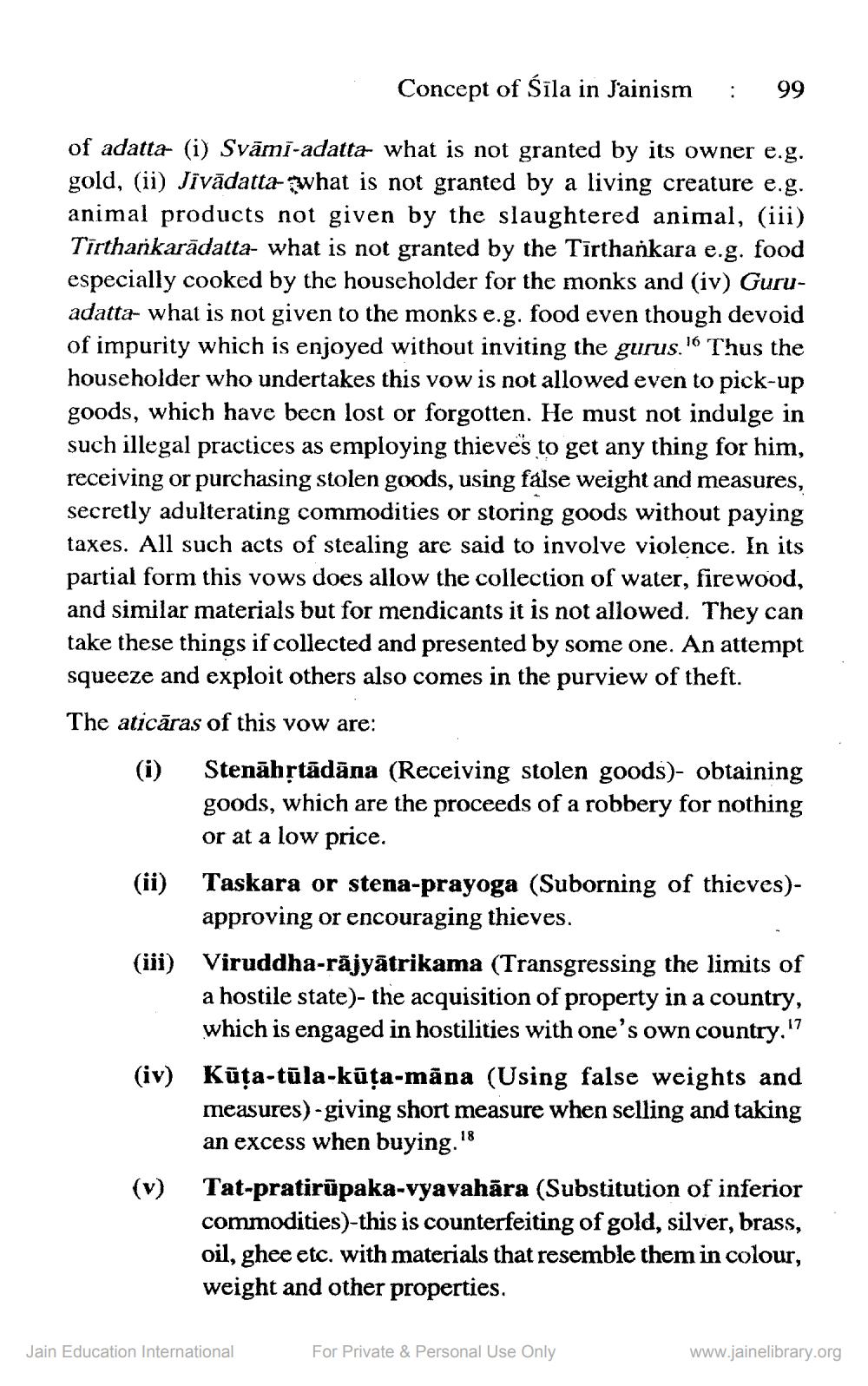________________
Concept of Sīla in Jainism
:
99
of adatta (i) Svāmi-adatta what is not granted by its owner e.g. gold, (ii) Jivādatta- what is not granted by a living creature e.g. animal products not given by the slaughtered animal, (iii) Tīrthankarādatta- what is not granted by the Tīrthankara e.g. food especially cooked by the householder for the monks and (iv) Guruadatta- what is not given to the monks e.g. food even though devoid of impurity which is enjoyed without inviting the gurus.' Thus the householder who undertakes this vow is not allowed even to pick-up goods, which have been lost or forgotten. He must not indulge in such illegal practices as employing thieves to get any thing for him, receiving or purchasing stolen goods, using false weight and measures, secretly adulterating commodities or storing goods without paying taxes. All such acts of stealing are said to involve violence. In its partial form this vows does allow the collection of water, firewood, and similar materials but for mendicants it is not allowed. They can take these things if collected and presented by some one. An attempt squeeze and exploit others also comes in the purview of theft. The aticāras of this vow are: (i) Stenāhstādāna (Receiving stolen goods)- obtaining
goods, which are the proceeds of a robbery for nothing
or at a low price. (ii) Taskara or stena-prayoga (Suborning of thieves)
approving or encouraging thieves. (iii) Viruddha-räjyātrikama (Transgressing the limits of
a hostile state)- the acquisition of property in a country,
which is engaged in hostilities with one's own country. '7 (iv) Kūța-tūla-kūța-māna (Using false weights and
measures)-giving short measure when selling and taking an excess when buying. 18 Tat-pratirūpaka-vyavahāra (Substitution of inferior commodities)-this is counterfeiting of gold, silver, brass, oil, ghee etc. with materials that resemble them in colour, weight and other properties,
Jain Education International
For Private & Personal Use Only
www.jainelibrary.org




